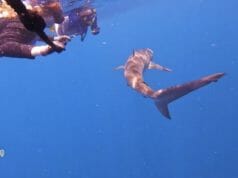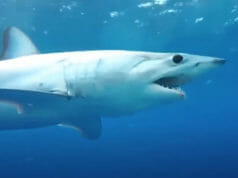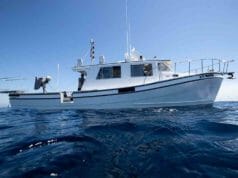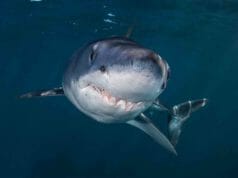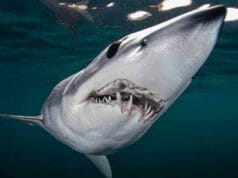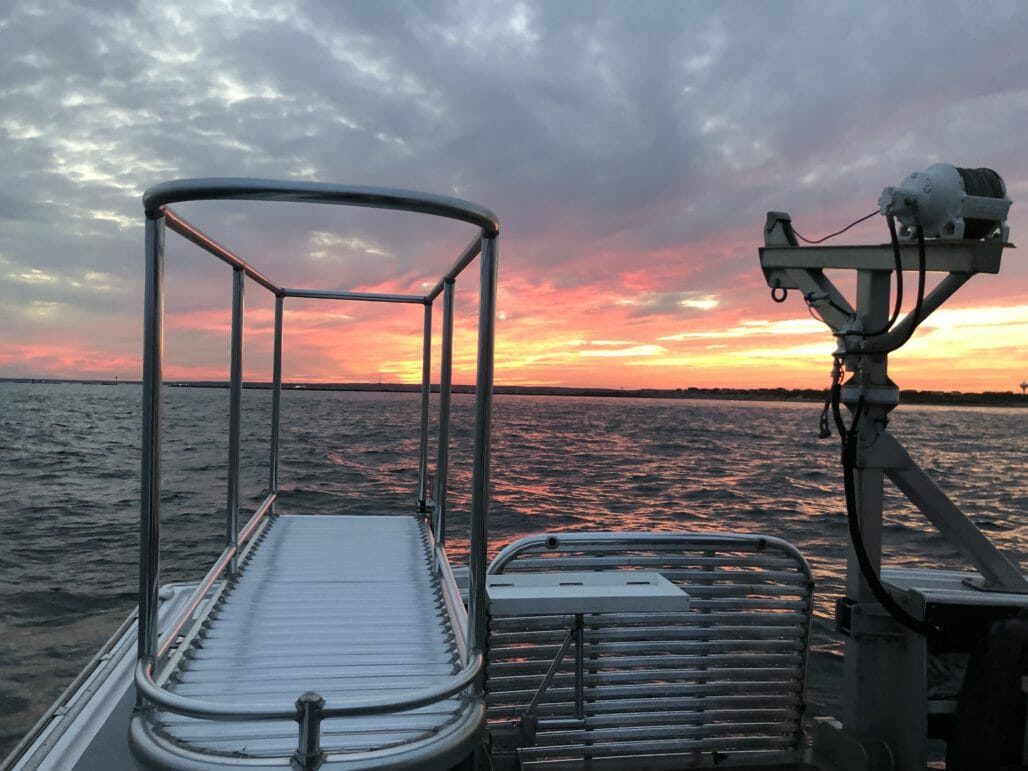
Bubbles and splashes in the water are the only remnants the Rhode Island Shark Diving team leaves behind. No hooks. No harm. Only art – and one heck of an experience.
It’s a cage-free, photography and film expedition unlike any other boat trip.
“At the end of the day we took nothing, caused no damage and had life-changing things happen,” cinematographer and naturalist Joe Romeiro said. “You can go out there and have interactions with wildlife and not take anything.”
What Romeiro and his colleagues do come home with is an astonishing collection of visuals that leave many in awe of how capturing them was even possible. Their work offers a unique perspective on what too many misconceive as one of nature’s most dangerous predators.
“People see their teeth and immediately think they will hurt you, when the chances of being hurt by a shark are very low compared to other animals,” Photographer, videographer, captain and marine biologist Lauren Benoit explained. “They don’t have hands, so they test out objects with their mouths.”
Contrary to popular belief, sharks are not purposely hunting people and most bites occur due to some kind of human error. Romeiro and the rest of the Rhode Island Shark Diving team take care to instruct passengers while enlightening them to the truth about sharks.
“Sharks are not out to get us,” Benoit said. “The ocean is their home and we have to know that when entering it.”
Rhode Island Shark Diving is a photography and film based ecotouring business that encourages passengers to consider sharks in a new light while capturing their beauty on film and providing an uncanny, first-hand look at their behavior. Passengers do not need to be scuba certified because all of the work is done at the surface. Educational trips are also offered for people who just want to stay on the boat.
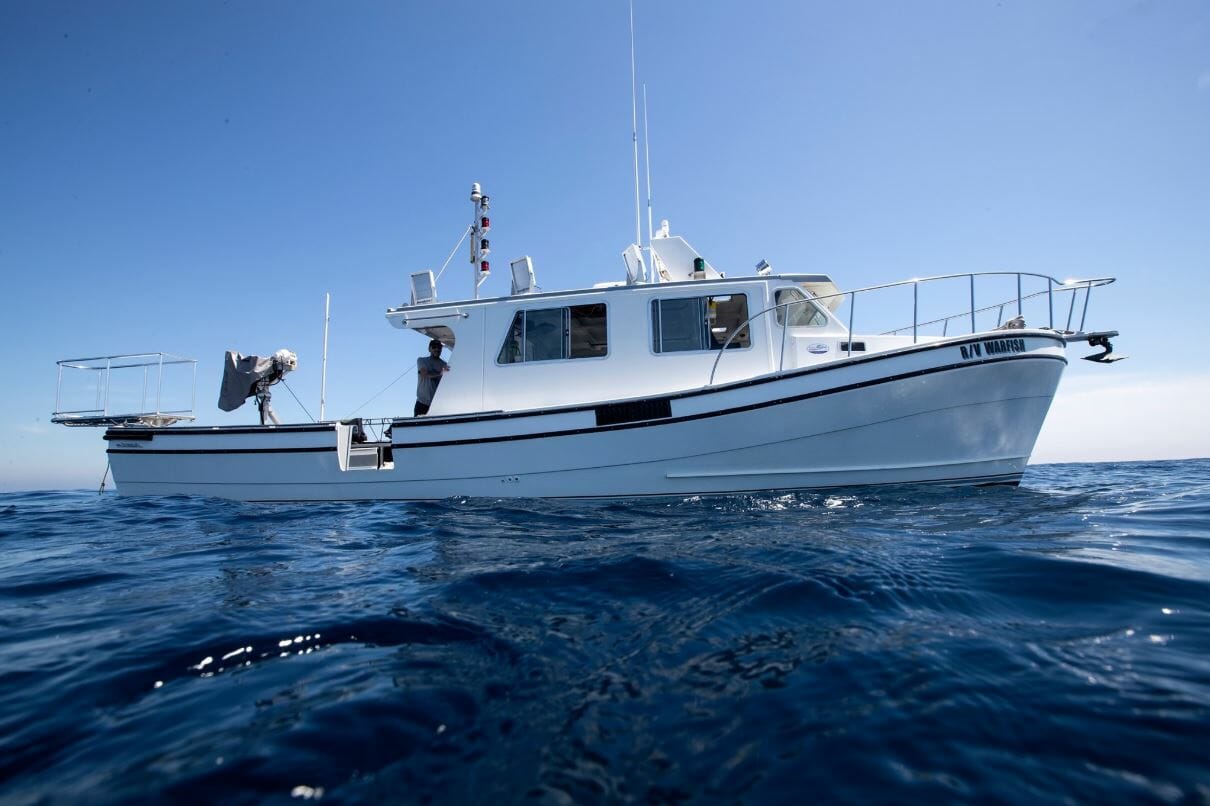
“Everyone I have taken shark diving is afraid of sharks until they come out of the water,” Benoit said. “And they end up falling in love with them.”
Some newcomers are nervous while others can barely contain their excitement. There’s nothing like the moment when that first shark shows up. The team gears up, gets in and welcomes the rest of the sharks who continuously visit throughout the day.
“The conclusion of the trip is always filled with people talking nonstop about the sharks on their ride home and how amazing the sharks were,” Benoit said.
Romeiro and Benoit find themselves in a niche practice that requires expertise and a lot of patience. They spend days and even weeks out on the water trying to capture something special. Wildlife filmmaking isn’t easy, but it’s certainly rewarding.
“It is very difficult to get the perfect shot,” Benoit said. “You take a thousand photos to get that perfect one.”
“Photographing animals like this gives you the ability to connect with them,” Romeiro said. “We show you how to safely interact with the sharks and engage with them in a way that you understand their movements.”
Through the lens, Rhode Island Shark Diving passengers (up to six at a time) learn about shark research and Atlantic Shark Institute, a Rhode Island based nonprofit, tax exempt charitable organization Romeiro helped get off the ground in order to give back to the animals who helped shape his career.
Sometimes scientists from the Institute will come aboard the 45-foot Research Vessel R/V WARFISH custom designed specifically for wildlife filming.
The boat has a 360-degree pulpit, 51″ swim step, two heavy-duty cranes
and a hauler, a removable side door for photography, four LED panels for
night diving, night vision cameras, top of the line emergency &
safety equipment, Iridium Go, a new upgraded touch screen navigation, plus side & bottom sonar.
“We basically built a floating film research studio,” Romeiro said.
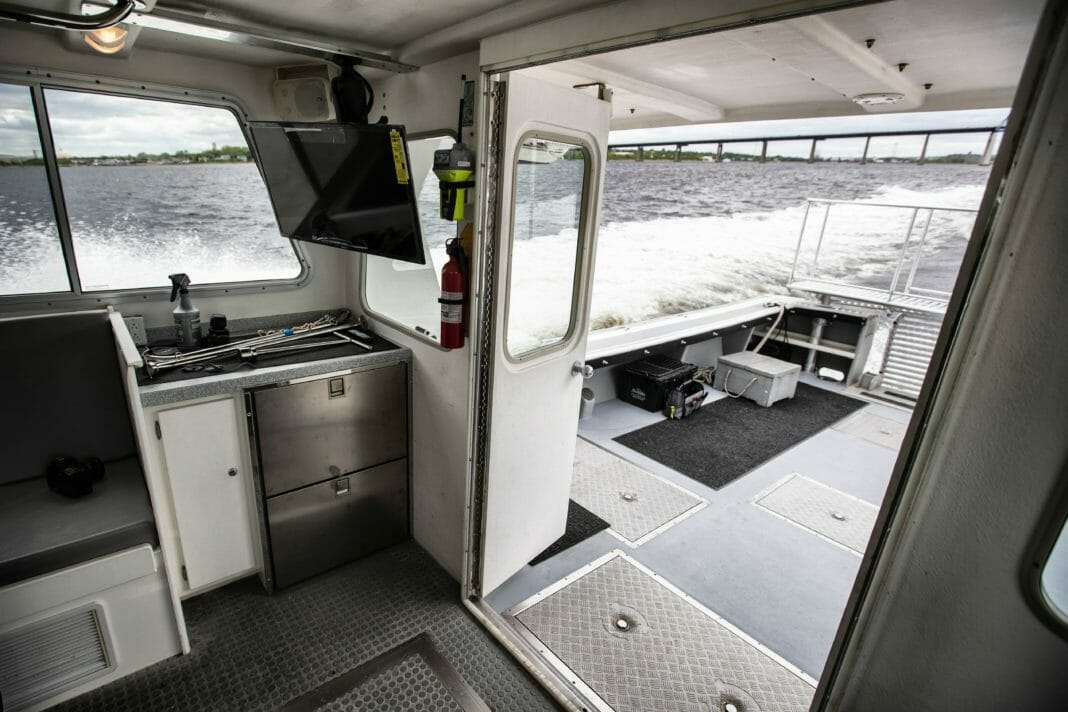
The impressive setup has helped the Rhode Island Shark Diving team become night diving pioneers. Night diving is only for advanced shark divers and it isn’t something the team advertises doing. Being out at night gives the crew the opportunity to observe shark behavior at all hours of the day while producing incredible images.
“We love night time because no one else is doing it and the sharks look beautiful against the black background,” Benoit said.
Having produced a portfolio of amazing shark footage and photos, Romeiro and Benoit are dedicated to the bigger picture with Atlantic Shark Institute’s overall mission.
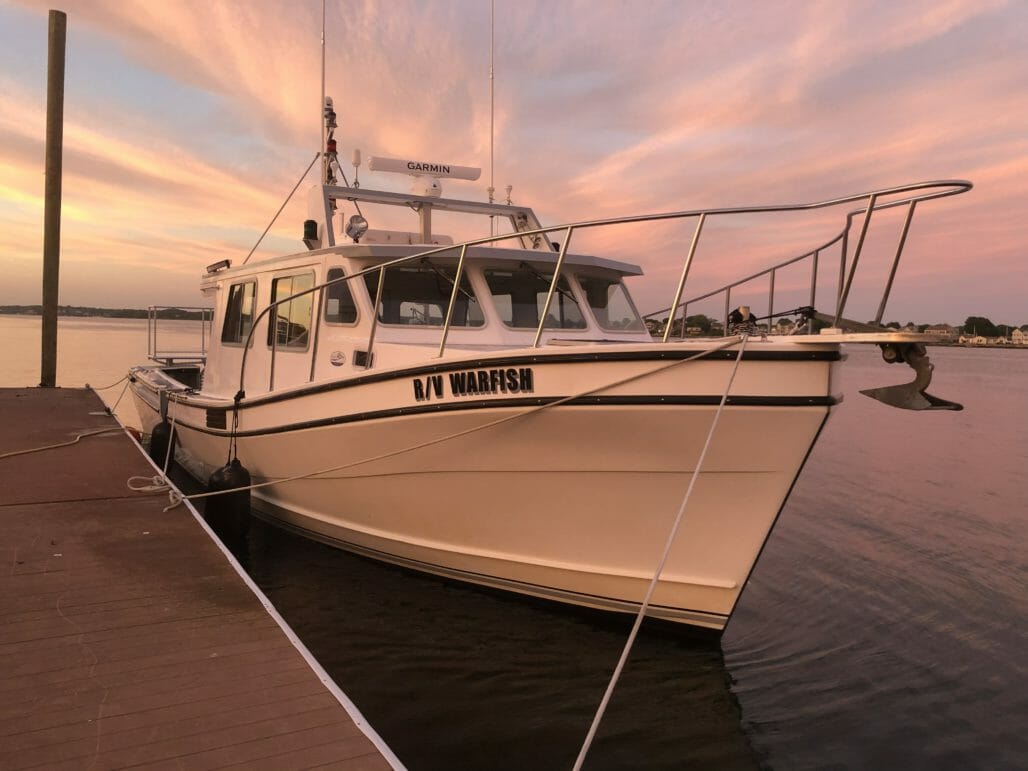
With so many shark species being heavily fished, commercially and recreationally, it takes a huge toll on their population. Even with catch and release, sharks are left with hooks in their mouths that can affect how they eat. Shark populations are declining and species like the mako have become endangered as a result.
“We hope that when people watch our footage, they can see sharks the same way we do.” Benoit said.
“We need to start getting the community involved with it and spark their interest in sharks,” Romeiro said. “Anybody that’s interested in doing that and has an ability to do that, we would more than welcome them.”



